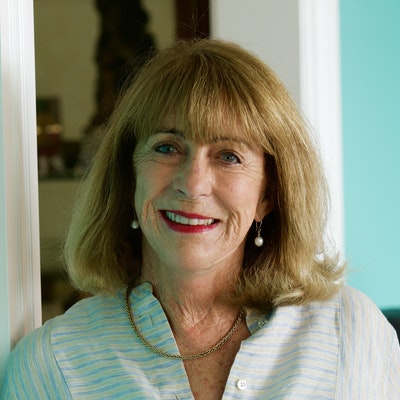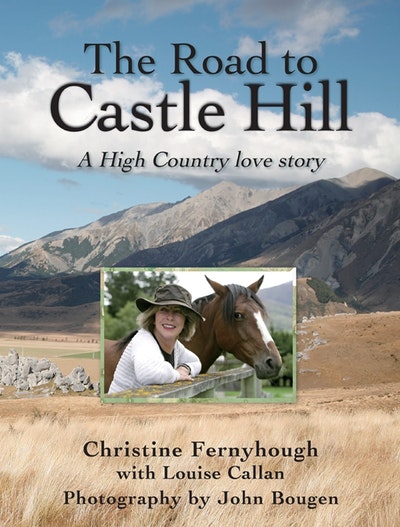Christine Fernyhough is well known as a leading Auckland philanthropist, having co-founded Books in Homes with Alan Duff 1994 and, in 2000, the Gifted Kids Programme for high achieving children in low-decile schools.
In 2003 she was a recent widow when she bought the legendary Castle Hill Station, near Porter Heights in the Canterbury Alps, which she transformed into a high performing farm.
The station came to national attention in 2007 when she published the bestselling The Road to Castle Hill: A High Country Love Story. This book was followed by Ben and Mark: Boys of the High Country and two picture books for young readers, Dart of Castle Hill and Phyllis of Castle Hill.
Her writing has been described as inspirational, warm-hearted, funny and honest and her books have received rave reviews.
Christine remains active in both rural and urban communities, is in demand as a public speaker, and in 2011 was made a CNZM for services to the community.
In 2015 Christine established the Museum of the Everyday, based on her personal collection of more than 5000 New Zealand craft, design, folk art and social history objects from the twentieth century, built up over 30 years.
Her latest book shares that collection, all housed in her charming 1950s seaside bach, the ‘Butterfly House’.
Dunedin’s Star described The Road to Castle Hill as ‘an inspiring read’ that is ‘a reflection of the Kiwi “can do” attitude that’s been the backbone of New Zealand achievement’. Next magazine called it ‘an exciting and inspiring story of how one woman turned her life in a completely new direction’, while New Idea declared it ‘warm and humorous, this book is inspirational’.
Writing in the Taieri Herald, Fiona Jenks concluded: ‘This is a wonderful story, with plenty of photographs, and will inspire people to dream big and have the nerve to follow that dream. It made me go back to the book case and rediscover my Mona Anderson and Jim Henderson stories’.
NZ House and Garden has likened it to the way in which Sara Henderson ‘celebrated her love of the Australian outback’.
The Saturday Express noted that Fernyhough’s initial ignorance of rural life makes her book accessible to urban readers, as well as to rural dwellers, and concluded that, with its beautiful photography and traditional high-country recipes, the book is a package that ‘any good true-blooded Kiwi will enjoy … it’s a must to buy’.
Commenting on the book’s subtitle — ‘a high country love story’ — the Gisborne Herald remarked that it is ‘a love story with many angles’, noting the blossoming of Fernyhough and Bougen’s romantic relationship in the making of the book, and the Nelson Mail ‘highly recommends … [this] heartwarming story told with humour and honesty’. Hawke’s Bay Today called it ‘a warm and inspirational story of a woman bold enough to embark on an entirely new life … A tale of pluck and determination, it immediately struck a chord with Kiwis … It has received rave reviews, the most rewarding from potentially her harshest critics, the farming community themselves.’



